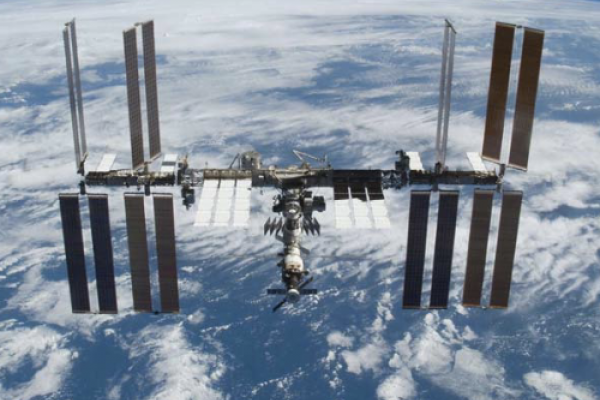
The assembly of the International Space Station was completed in early 2011. Its largest research instrument, the Alpha Magnetic Spectrometer is planned for launch in late April. Unlike any previous laboratory in space, the ISS offers a long-term platform where scientists can operate experiments rapidly after developing a new research question, and extend their experiments based on early results.
This presentation will explain why having a laboratory in orbit is important for a wide variety of experiments that cannot be done on Earth. Some of the most important results from early experiments are already having impacts in areas such as healthcare, telemedicine, and disaster response. The coming decade of full utilization offers the promise of a new understanding of the nature of physical and biological processes and even of matter itself.
Dr. Julie A. Robinson is the Program Scientist for the International Space Station (ISS) for the National Aeronautics and Space Administration (NASA) at Johnson Space Center. She serves as the chief scientist for the ISS Program, representing all ISS research disciplines and providing information and recommendations both inside and outside of the agency. She chairs the ISS Program Science Forum, made up of the senior IS scientists for each of the primary space agencies comprising the space station international partnership, and represents NASA at the multinational agency IS User Operations Panel. As ISS Program Scientist, Robinson has overseen the transition of the laboratory from the assembly period, with just a few dozen active investigations, to full utilization, with hundreds of active investigations.
Dr. Robinson has an interdisciplinary background in the physical and biological sciences. Her professional experience has included research activities in a variety of fields, including virology, analytical chemistry, genetics, statistics, field biology, and remote sensing. She has authored over 50 scientific publications.
She earned a Bachelor of Science in Chemistry and a Bachelor of Science in Biology from Utah State University in 1989. She earned a Doctor of Philosophy in Ecology, Evolution, and Conservation Biology from the University of Nevada Reno in 1996.
